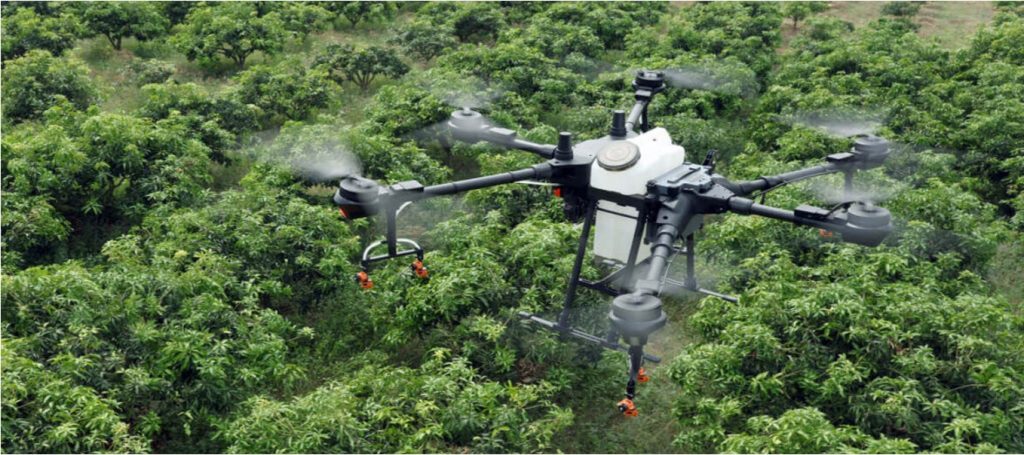
The argument over whether a battery-powered or gasoline-powered drone is superior seems to be unending. Drones have been around for a long time, and there are several models, varieties, and uses to suit every budget. You may purchase a drone for private or business purposes. Drones may be utilized for business, leisure, or amusement purposes. It might be challenging to decide what to purchase with so many options. We will explore the advantages and disadvantages of several kinds of drones in this blog and assist you in making the best choice for you.
1. Introduction
Drones are gaining popularity as technology advances. They’re getting more inexpensive, and a growing number of individuals are using them for various applications. They are also gaining popularity among people wishing to farm. Many individuals are unsure whether a battery-powered or gasoline-powered drone is superior. Drone Comparison: Battery vs. Gasoline A drone powered by batteries will be more costly and have a shorter range. A gasoline-powered drone is less expensive and has a longer flight duration. It is advisable to utilize a gasoline drone if you have a big farm.
Drones Are Attracted to Farms Drones have become increasingly inexpensive in recent years. You do not need to pay a fortune to get one. You can get one powered by a lithium battery for as little as $400. For as low as $500, you can get a gasoline-powered commercial drone.
2. Pros and Cons of Gasoline Drones
If you are a farmer who owns a drone, you should be aware that the battery will eventually run out, and you will need to recharge it. There are two distinct methods for recharging your battery. The first option is to fill the tank with gasoline, while the second option utilizes a solar panel. If you want to charge the drone with a solar panel, you must locate a sunny location. If you opt for gasoline, you’ll need to figure out how to refill the tank. If you’re not interested in finding a means of filling the tank, you can simply keep a few cans of gasoline on hand.
Numerous individuals are interested in doing agricultural tasks from a faraway area. The majority of individuals do not have access to tractors or other vehicles. A gasoline drone is ideal for this task. It can fly for a longer period and cover greater distances. Additionally, you may process and harvest crops using an attachment. It’s an excellent approach to running small farms. Because a gasoline-powered drone is lighter than a battery-powered drone, it will be relatively light. It is possible to fly it at a greater height. A gasoline-powered drone is both safe and simple to control.
3. Pros and Cons of Battery Drones
Battery drones are an excellent alternative for individuals who wish to fly for a short time and aren’t concerned about the battery dying. On the other hand, gas drones are more suitable for individuals who like to fly for an extended amount of time. However, gas drones are more costly and might be harder to locate. Additionally, gas-powered drones need more frequent refueling than battery-powered drones.
4. Drones Comparison
Distance vs. Power Range At $400, you can purchase a lithium battery drone. It flies for approximately 45 minutes and lasts for up to 5 miles on one charge. It takes a while to recharge, though, so if you want to fly around an area, you’ll need to find somewhere with an outlet. There are gasoline drones, however, that offer a range of up to 1.5 miles. This allows you to fly for about 20 minutes. This is a good option if you are operating a smaller farm and don’t need a full flying time. Battery-powered drones require how many hours to recharge the battery after one flight, however refueling a gasolene drone is just a matter of a few seconds.
5. Drones for You and Your Farm
The fact is that a tractor is not required to operate a drone. You can do the same thing with a drone without making a significant expenditure. While a gasoline drone cannot haul trailers or carry goods as quickly as a tractor, it is less costly. Additionally, gasoline drones can fly quicker and can be transported in smaller trucks. This is why they are great for farmers who operate small farms and do not need a lot of electricity.
6. Conclusion
Agricultural drone technology is without a doubt the way forward for India’s farming population. It has the potential to revolutionize conventional agricultural processes in an infinite number of ways. Even though this technique requires more familiarity to master, it will provide results in no time. While gas-powered drones cost more, they have a longer flying duration. While battery-powered drones are less expensive, they need recharging after each flight. The choice between a gasoline or battery-powered drone is a cost-performance trade-off.
Now design services are available for purchase from here





